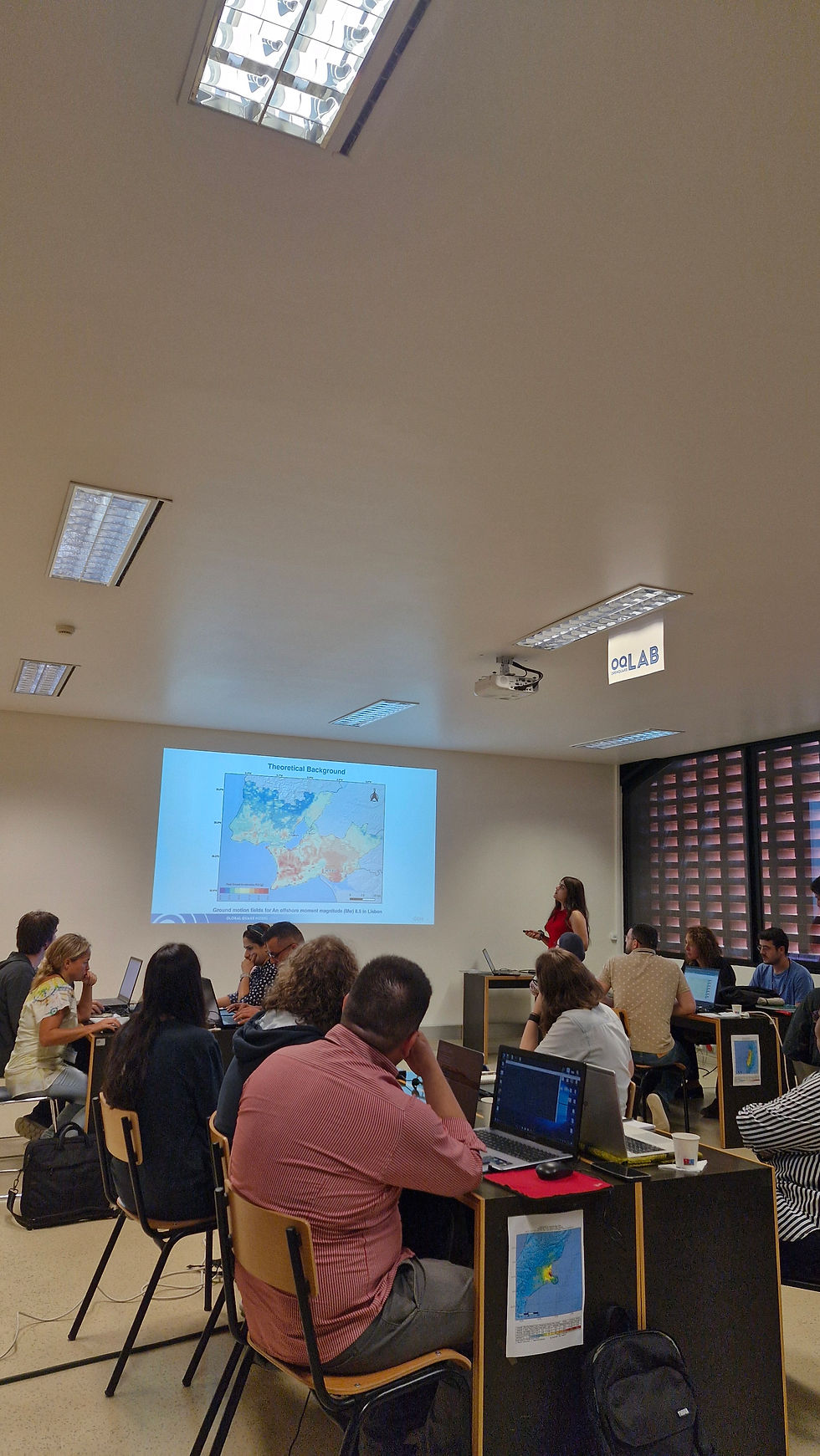
The University of Aveiro in Portugal hosted the second GEM–EGU Summer School on Geohazards Risk Assessment from 8-12 September 2025, bringing together 26 participants from 22 countries for an intensive week of learning, exchange, and collaboration. This year, the Summer School was organized in collaboration with the Marie Skłodowska-Curie Integrated Training Network TREAD!
Training the Next Generation
The Summer School provided participants with training on hazard and risk analysis using open-source tools, particularly GEM’s OpenQuake Engine. Through hands-on exercises, they learned how to run earthquake scenarios, interpret results, and present findings to different stakeholders. Case studies included recent events such as the 2023 Türkiye and 2025 Myanmar earthquakes, as well as risk reduction practices from Lisbon.
Beyond earthquakes, the programme explored multi-hazard risks including landslides, liquefaction, and tsunamis. Lectures and workshops were led by experts from GEM, the University of Aveiro, University College London, the University of Calabria, the Norwegian Geotechnical Institute, and other institutions.
Participants who successfully passed the final assessment earned an official OpenQuake Engine User for Scenario Assessment certification, valid for three years, marking a tangible step forward in their professional development. This was the first time that the GEM Foundation offered the opportunity to become a Certified User of the OpenQuake Engine; more opportunities for certification are expected to be offered in the future, also for PSHA and PSRA, and interested users can find more information on the GEM website.
Building Skills and Community
Interactive sessions challenged participants to apply what they had learned to real-world problems. Teams tested different modelling approaches in OpenQuake and presented strategies for reducing earthquake risk under limited budgets. These exercises highlighted the value of evidence-based decision-making and the practical application of scientific models in disaster risk reduction.
Speakers also addressed risk communication and the social dimensions of resilience, reminding participants that scientific results must be translated into policies and actions that benefit communities.

A Platform for Collaboration
The Summer School was organised by GEM and the University of Aveiro, with support from the European Facilities for Earthquake Hazard and Risk (EFEHR) and the European Integrated Training Network TREAD. Doctoral candidates from TREAD actively contributed, underscoring the event’s role in connecting research with practice.
For GEM, the programme is an investment in the next generation of disaster risk reduction professionals. By equipping young scientists and practitioners with the skills and networks to apply risk assessment tools in their home regions, the Summer School reinforces a shared commitment to resilience worldwide. As part of this effort, GEM provided travel and accommodation grants to selected participants from lower- and middle-income countries, an ongoing initiative supported through GEM’s commercial funds to strengthen capacity where resources are most limited.
No images found.
GALLERY




VIDEO

RELATED CONTENTS










